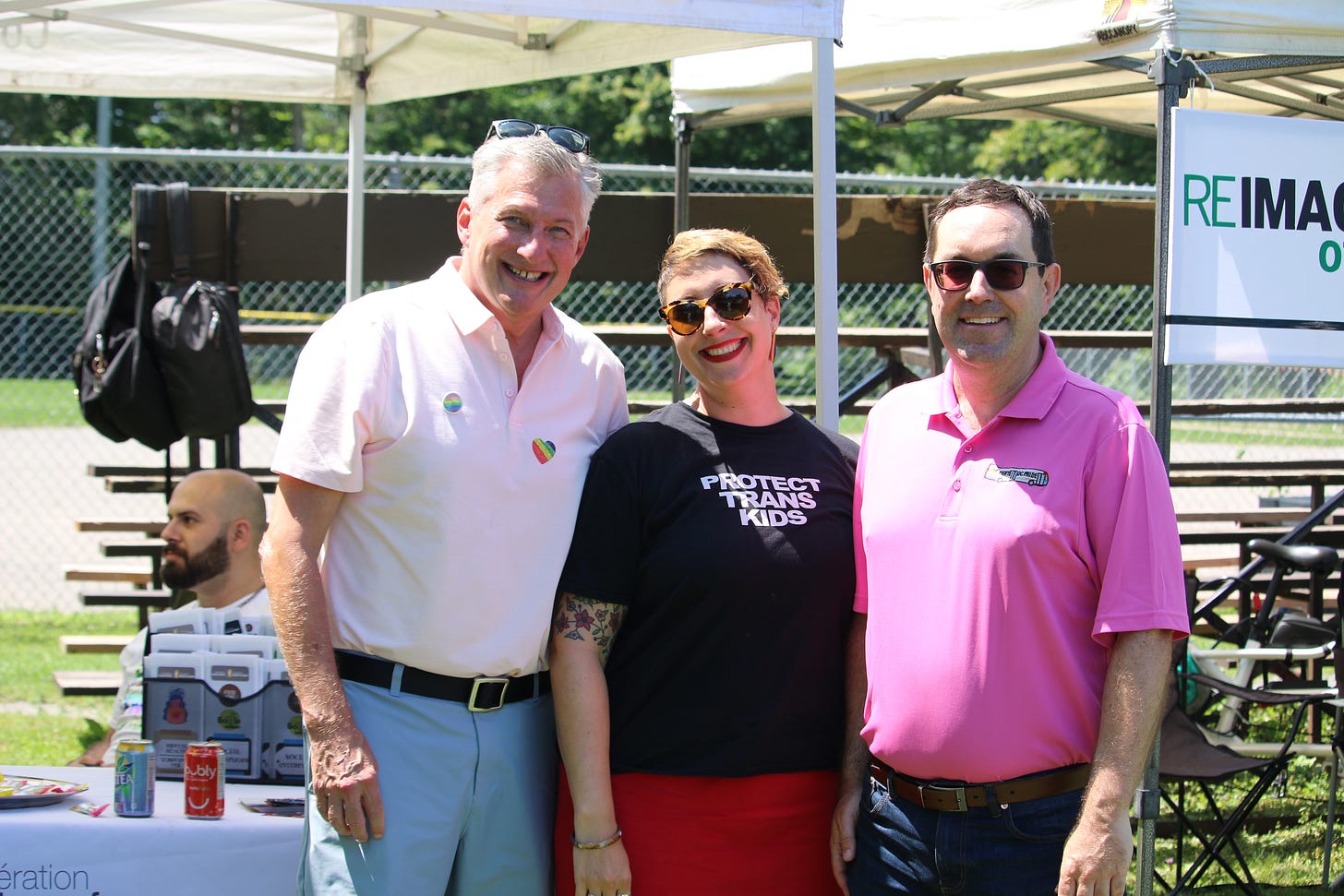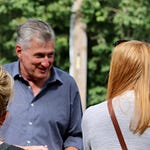The book is available in print, ebook and audio book formats.
[Chapter One] [Chapter Two] [Chapter Three] [Chapter Four] [Chapter Five] [Chapter Six] [Chapter Seven]
Wen Control Hurts You
The 2025 federal election campaign will be one for the books. It was unique in so many ways, including for the inordinate control the main opposition party exerted over its own members when it came to public debates or media appearances.
Several journalists documented a trend that saw Conservative candidates agreeing to interview requests only to cancel without explanation at the last minute. I’ve had the unfortunate experience of having to find a replacement at the very last minute myself for a media panel I was organizing in early April. I could not find a single Conservative candidate who would participate.
This is straight out of the Trump playbook. The only journalists (or “journalists”) these people talk to are the ones who don’t have any independent standards to uphold. They’re partisan media. Influencers. People with biases and opinions who appear not to care about being minimally honest with their facts.
In part, that’s because conservative movements tend to attract people with views that are outside the mainstream, especially on social issues. When they agree to answer questions from mainstream media, they inevitably trip over their own feet because of those views. Stephen Harper had to maintain a very tight grip on his caucus back in the day, because if he didn’t, they’d go off and talk about abortion or the “gay lifestyle” in ways that would make most Canadians’ skin crawl.
Canada is different from the United States, in that nobody can build a coalition large enough to win a majority of seats in Parliament just with social conservatives. Conservative leaders who want to be prime minister need to keep a tight lid on their extreme right. I argue that refusing to talk to the media only makes their problem worse, because they look like they’ve got something to hide.
As someone who’s made a career as a columnist and essayist, I have no issues with people who are open about their biases and opinions. I think we’re great. But if you only speak with people who share your views, biases, and opinions, you’ll never get better. Look at Donald Trump. Does he seem like someone who’s ever learned anything in all the time you’ve known him?
Conservative parties in recent memory have all tried to exercise control over who gets to speak publicly about anything. It didn’t start with Jenni Byrne, Poilievre’s campaign manager and long-time friend, but she sure took it to new lows by preventing media from purchasing seats on the leader’s plane.
Some of you may not know that Byrne and Poilievre had been a couple for a number of years, long before Poilievre married Anaida. They’ve been close for a long time and that goes much beyond their former love life. They are alike, politically. Aggressive, combative, and controlling.
You’ll find commentators who think this is a good thing, but I disagree. I think they’re close together because 1) nobody else wants to work with either of them, seeing as they’re difficult and demanding and 2) they both figure the other is the best partner to achieve the kind of power they’ve been chasing for decades. Neither is prepared to let some fresh air and new thinking come into the relationship and that’s the reason why I think their best days are behind them.
Byrne is skilled at many things. She gets credit for Pierre Poilievre’s rise within the party and for the Conservatives being ahead of the Liberals for two years. But she’s also very good at alienating people, including those who are on the same side as her.
In 2015, when the outgoing Harper government lost to the Liberals, she caused so much bad blood that she got tossed from the campaign ahead of the vote.
Poilievre has fans and supporters, but I don’t know that he has many genuine friends. Politics is very cruel that way. In fairness, Poilievre has never been known for cultivating alliances the way most politicians do. He’s always kept his circle small and tight. I’m sure he’s feeling quite lonely since losing his seat.
He has gambled everything on raw power, powerful pay cheques, and biological clocks. He’s earned himself a group of followers who dislike losers. It’s a tough awakening for a team that never bothered with cultivating teamwork, to find that its supporters aren’t especially supportive in defeat.
Bruce Fanjoy is not a professional politician, but he does know his marketing and communications basics. One of the first rules is to not refuse interviews from legitimate media.
It took some time for members of the media to notice his campaign. The first one was National Observer journalist Natasha Bulowski, who interviewed him about his house. When she asked to speak with him, she didn’t know he was running for the Liberal nomination. Fanjoy told her and she added a line about the campaign in her article.
The first profile of Fanjoy as a politician came from the legendary Michael Harris in March 2024. Writing for The Tyee, Harris managed to encapsulate the whole Fanjoy method in three short paragraphs:
The secret to Fanjoy’s doorstep manner is that he listens rather than lectures. He is also well served by a sense of humour. A case in point: At one house the resident gruffly told Fanjoy he’d knocked on the wrong door and that the man would never vote Liberal.
Fanjoy thanked him for the economy of his response. But as Fanjoy was leaving, the man added, “Let me tell you why.”
Fanjoy listened as the man launched into a litany of complaints against the Liberals that encompassed the sweep of history. When the man completed his tirade, Fanjoy looked into his eyes and said, “So I’ll put you down as a ‘maybe.’” They both enjoyed a hearty laugh. Fanjoy may not have turned a Conservative, but he had charmed one.
Pierre Poilievre, by contrast, lectured more than he listened. Something that didn’t change after he lost his seat.
It was written in the sky, like we say where I’m from, that Poilievre would take defeat very hard. If I had to guess, I’d say he was more offended than hurt. I’ve been around people like him long enough to know they don’t tend to change their minds, and they don’t hear opinions contrary to what they are determined to believe.
One of those opinions that the people who follow Pierre Poilievre believe is that Canada is broken and that the Liberals broke it.
No, they don’t just say this during campaigns. The reason so many people said they supported the Tories is that they, too, believe their country is broken.
Not badly managed. Broken.
That’s a very MAGA-esque thing to say. And the people in Canada who say and believe it fully understand how that makes them look Trumpy. If they feel bad about it, it’s not immediately apparent.
Bruce Fanjoy always pushed back on this notion that the Liberals had somehow ruined the country. It’s fine for people to disagree and think the government is taking us in the wrong direction. But we don’t need “fixing.” And evidently, the voters of Carleton agreed with that sentiment.











